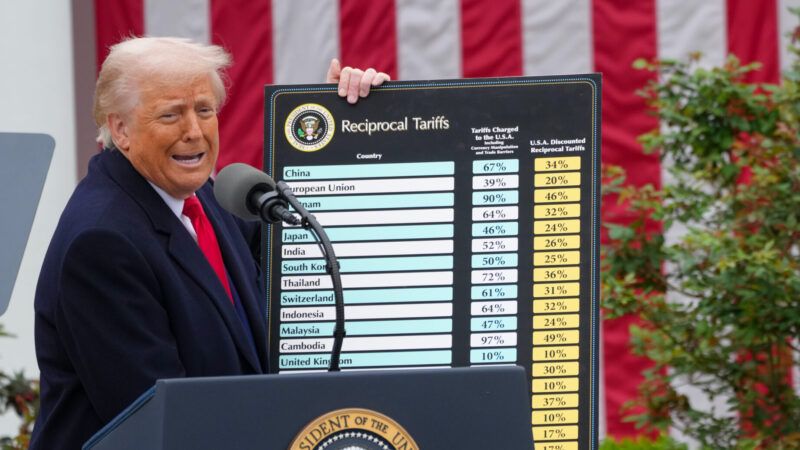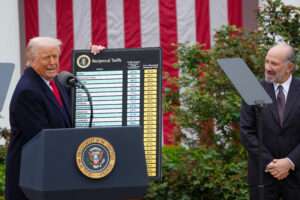Michael McConnell on the Tariff Cases and their Significance
A leading conservative legal scholar explains why striking down Trump's IEEPA tariffs is vital to protecting the separation of powers.


Stanford law professor, leading conservative constitutional law scholar, and former federal judge Michael McConnell has an excellent New York Times op ed on the cases challenging Trump's tariffs, and their significance. An excerpt:
Are President Trump's "Liberation Day" tariffs on, or are they off? And, more important, will legal challenges to these levies put the brakes on the seizure by presidents of both parties of ever-increasing unilateral power?
Two federal courts recently ruled that Mr. Trump lacks authority to impose them, but a specialized federal court with authority over tariff cases, the Court of Appeals for the Federal Circuit, paused the enforcement of those decisions, ordering lawyers to submit legal briefs before a hearing on Monday. One or both cases are likely to land at the Supreme Court in short order.
Understandably, most of the commentary has focused on the practical ramifications for the president's trade negotiations and the American economy. But the cases may be even more important for the future of a fundamental component of the Constitution's architecture: the separation of powers, intended by the founders to prevent any of the government's three branches from becoming all powerful.
The tariff litigation is shaping up as the biggest separation-of-powers controversy since the steel seizure case in 1952. There, President Harry Truman assumed control over the nation's steel mills to ensure the continued supply of armaments needed for the Korean War. The Supreme Court rebuffed Truman, establishing the principle that, even in an emergency, the president cannot take upon himself powers that are granted neither by the Constitution nor by congressional statute….
It is clear that the president has no inherent constitutional authority to set or change tariffs or any other taxes. That authority is expressly given to Congress in the first clause of Article I, Section 8, of the Constitution. And it is also clear that Congress has not expressly delegated any power to the president to impose tariffs on his own say-so.
The question is whether vague language in a 50-year-old statute, the International Economic Emergency Powers Act of 1977, gives the president the tariff-setting power…
The statute makes no mention of tariffs or other taxes, and before Mr. Trump, no president ever interpreted it to include such a power.
But the statute does empower the president to regulate the import of "any property in which any foreign country or a national thereof has any interest by any person." This is the language the Trump administration points to in support of his "Liberation Day" tariffs.
Is that right?
The answer to this question will reverberate far beyond the issue of tariffs, because the federal statute books abound with vaguely worded laws that, if broadly interpreted, could empower Mr. Trump and future presidents to take upon themselves extensive powers never intentionally delegated by Congress. If the courts uphold the Trump tariffs, it will be a major step toward a presidency that does whatever the president wishes to do.
I made similar and related points in my recent Atlantic article about the Court of International Trade ruling in the case against the Liberation Day tariffs filed by the Liberty Justice Center and myself on behalf of five small businesses harmed by the tariffs.
Prof. McConnell is coauthor of an important amicus brief filed in our case, on behalf of a bipartisan group of prominent legal scholars and former government officials. We are very grateful for his support, and that of the others who joined the brief.
